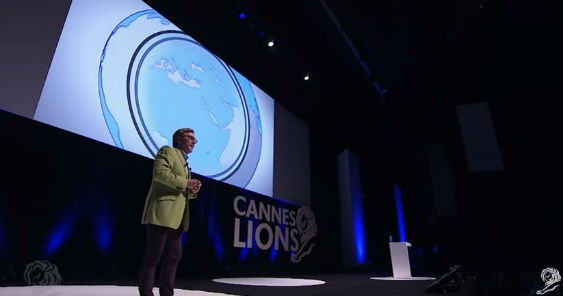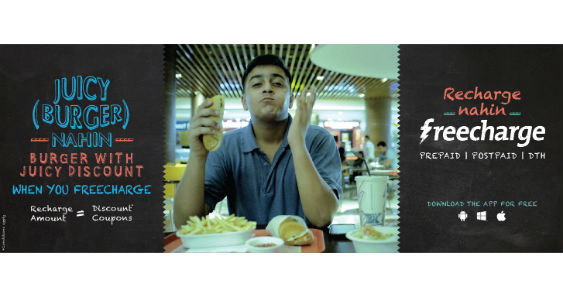“Brands love them or hate them, they’re an intricate part of our everyday life.” Keith Weed hit the ground running and right away made his point as he stepped onto the Lions Live stage, “The future of brands is best captured by the equation i to the power of n in this technology driven world.”
His i stands for individuals, influencers and impacts.
He believes brands have gone from mass marketing to massive customization and mass marketers like Unilever who are used to looking at a mass of people are now looking at meaningful groups of people. He sees the need for marketers to change perspective, “CMO who used to be a chief macro officer needs to be chief micro officer.” There’s a need to be able to balance both which can be done through the use of technology.
Weed then discussed the power of influencers and the value of magnifying your message using influencers whom he says is not just celebrities but power users. These are personalities which are driven by time, by location, by topic, and therefore, marketers must be very keen about what people are talking about, where are they are and when they are talking about it, “This will help you identify who your influencers can be.” He cited the example of Sir Ken Robinson, education expert, who advocates the value of play in education and was used for Persil’s “Free the Kids’ campaign.
The last i stand for impact which he introduced by way of a plea from Richard Curtis, writer, director and sustainable development goals (SDG) advocate, for the marketers and advertisers to help make the global goals famous. Curtis asked for support from the Lions Live crowd that spreading awareness about the goals will help people know what they can do and achieve, and how businesses can be actively involved in its pursuit.
Weed also touched on the impact of campaigning brands in business growth, “We should be campaigning product brands and not only corporate brands because it makes good economic sense as well as make a different impact around the world.” As proof he showed how their ice cream brand, Ben & Jerry inspired people internally as well as externally through a campaign for Clean Energy, the campaign against climate change which successfully gathered 3.6 M signatures (including 300,000 Ben & Jerry fans) which were delivered to the 190 World Leaders at the UN Climate Summit. The signatures prodded and inspired the 190 countries in the summit to commit to take definite action in support of the cause.
Weed inspired the audience some more by pointing out the gains that challenging stereotypes, like Dove’s real beauty campaign could deliver. A global study made by Unilever showed that progressive ads, as compared to normative ads actually showed bigger impact proving that un-stereotyping might actually be an economic issue more than a moral issue. He went further by mentioning Unilever’s commitment to un-stereotyping by portraying women in a more authentic, three- dimensional and non-critical manner.
“What’s emerging to be the most important now is what consumers want,” Weed cites another research that 54% of people will buy a product (given that they are parity-priced and parity- performance) if it’s socially and environmentally sustainable. For skeptics who question if sustainability translates to business growth he showed the growth of Unilever’s sustainable living brands, which grew faster than they did in 2014 and delivered nearly half Unilever’s growth. In addition, these brands grew 30% faster than the rest of the business, “Brands with purpose, brands with real meaning engage people at scale.”
Weed ended his talk with a realization and rejoinder, “Marketers used to be ahead of consumers but with all that’s going on in technology, consumers are getting ahead of marketers. Now is the time for renaissance in marketing. The future of brands lies in i to the power of n.”










